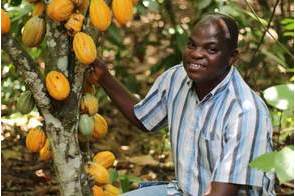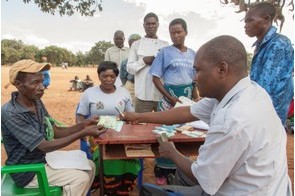Nigeria is not on track to achieve financial inclusion target by 2020 – LBS

Summary
The LBS' digital financial inclusion report shows that 43 percent of Nigerians are financially excluded.
Academic Director at the Lagos Business School (LBS) and Head of the LBS' Sustainable and Inclusive Digital Financial Services initiative (SIDFS), Dr. Olayinka David-West, has said Nigeria is not on track to achieve the country's financial inclusion target by 2020.
The goal of the Central Bank of Nigeria's National Financial Inclusion Strategy is to reduce the adult Nigerian population without access to financial services from 46.3% in 2010 to 20% by 2020. However, the third edition of the SIDFS' digital financial inclusion report, released on Thursday, shows that 43 percent of Nigerians are financially excluded.
The report, which was released at a two-week curated exhibition, which started yesterday in Lagos, categorized the financially excluded into six customer segments. These are: vulnerable believers (12%); resilient savers (21%); dependent individualists (22%); digital youth (19 percent); confident optimists (14%); and sceptical cultivators (12%).
The report, titled The Consumer Segmentation Framework, was released in partnership with Dalberg Global Development Advisors – a strategy and policy advisory firm – and is supported by the Bill and Melinda Gates Foundation. It is a study of the underbanked and unserved consumer segment.
The LBS Academic Director also noted that limited knowledge of customers is one of the many challenges of financial service providers.
“This limitation often resulted in misidentification of customers’ needs,” she said. “There is no one-size-fits-all approach to dealing with consumers. We need a paradigm shift in how we can make their lives better through financial services.”
According to the report, a broader community engagement is essential to driving financial inclusion in Nigeria. The report aims to accelerate the achievement of the CBN's financial inclusion target through its insights and data.
Nneka Eze, Associate Partner and Lagos Office Director of Dalberg, said that financial inclusion is beyond opening or owning a bank account, but entails how often the account is accessed and used, and how the financial service providers assist or influence the individual’s life.
“We want a situation where we can keep more money within the formal financial institutions, and not the rural or non-formal ways,” said Nneka. “The report proffers principles on engaging with last-mile customers based on motivation and adoption triggers uncovered.”
She added that the research was carried out in five other countries as well to determine what made people interact with finances in Nigeria.
The two-week exhibition is to portray the persona of identified customer segments to help key stakeholders such as regulators, operators and service providers connect with the realities of the segments that they seek to serve.
The Co-founder and Director of Video Art Network Lagos, Oyinda Fakeye, who is also the curator of the art exhibition, said the exhibition employs the power of audio-visual realism to portray the customer segmentation profile that would allow stakeholders connect with the personas they seek to serve; and create fit-for-purpose interventions.
Related
-
MasterCard Foundation launches competition for financial inclusion in rural Africa
Since its launch in 2015, the Fund has held four competitions and 19 projects across Sub-Saharan Africa have been supported ...
-
Kiva, MasterCard to expand financial products and services for Africa's smallholders
MasterCard Foundation will support Kiva Labs to introduce or scale new financial products and service innovations.
-
Impact of cash transfer schemes limited by myths in Africa – study
The study tackles the numerous ideologies and misinformation that limit the ability of poor communities to leverage the ...







